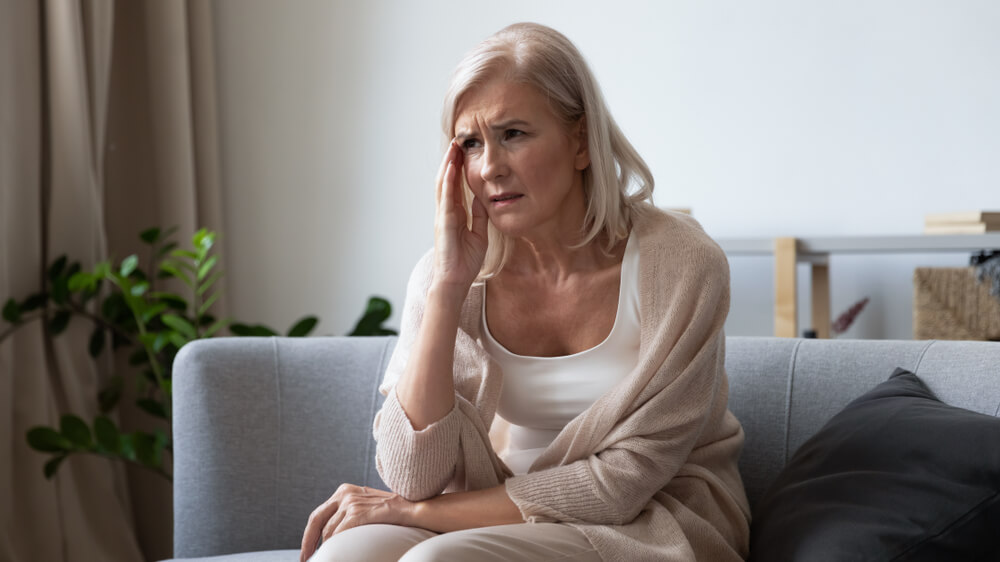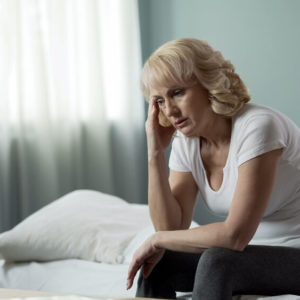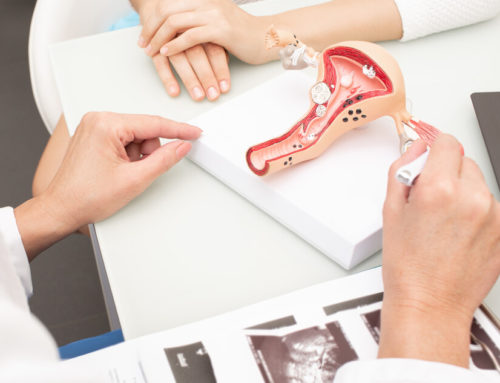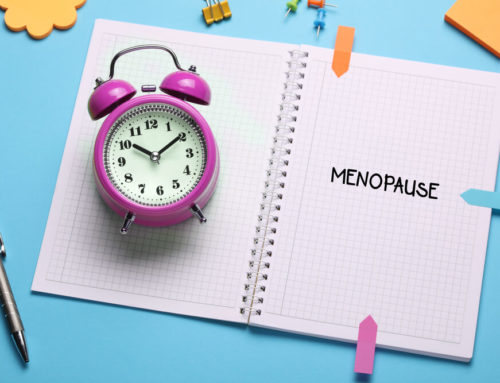Educating yourself on the symptoms of menopause is essential in helping you to determine whether or not you’ve entered this life stage and how to maximize your health.
In addition, this article also discusses some of your most commonly asked questions, such as “what are the worst menopause symptoms?” and “is nausea a symptom of menopause?”. By the end of this expert article, you’ll be fully equipped with knowledge about the unusual menopause symptoms and why they occur.
If you’re concerned about your health and do not have anyone to turn to, we recommend menopause treatment in Miami. By consulting highly trained experts in a reliable facility, you will be able to discuss your symptoms and possibly start treatment.
So, what are the most unusual menopause symptoms to keep in mind? Read on to find out.
What is Menopause?
Typically, we refer to “menopause” as occurring once someone has a full twelve months without any menstrual cycles. The average age of menopause in the United Stated is 51. There is also a time right before menopause happens called perimenopause. During this time, it is very common for periods to become irregular and start spacing out or becoming lighter. Menopause symptoms may also occur at this time such as hot flashes. The average time of perimenopause is roughly 2-4 years. Therefore, women may expect certain symptoms and bodily changes years leading up to menopause.
Unusual Menopause Symptoms to Remember
You may be wondering: “what are the worst menopause symptoms?”. The answer to this is not straightforward as everyone experiences menopause and its symptoms differently. It is completely normal to not experience any hot flashes in menopause while others can experience daily hot flashes.
Below, we have compiled a list of the top symptoms of menopause you or a loved one might experience. Some may not be what you expected!
Irregular Periods
Women in menopause may have irregular or missed menstrual cycles. Cycles can also be shorter and lighter, and occasionally heavier. This change in bleeding pattern can last several months or years and is called perimenopause, or the time right before menopause.
Night Sweats
Night sweats are hot flashes that occur during the course of the night. Although the reason for night flashes is not yet completely determined, scientists believe it has to do with falling or decreasing estrogen levels.
Hot Flashes

Hot flashes are a common sign of menopause. You may suddenly feel hot, flushed, and sweaty, especially on your chest, neck, and face. These episodes can last several seconds or several minutes.
Decreased Libido (Sex Drive)
During menopause, you may have a low sex drive. It is believed that decreased libido happens due to low estrogen and testosterone levels.
Breast Soreness
Some women experience breast tenderness and soreness. Since breast tissue is very estrogen responsive, tenderness can result from changes in these hormone levels during menopause.
Mood Shifts
Many women in menopause experience sudden feelings of anger, sadness, and irritability. It is important to note that sometimes these mood changes are unrelated to menopause and are caused by other life events.
Headaches
You may experience headaches or migraines during menopause due to a drop in estrogen levels.
Vaginal Dryness
A lack of female sex hormones can cause vaginal dryness and itchiness. In some cases, this can lead to pain during intercourse.
Fatigue
Fatigue is a common symptom of menopause. This is often due to hot flashes occurring during sleep (night sweats), which then leads to women waking up in the middle of the night.
Joint Pain
Since estrogen decreases inflammation in the body, a drop in hormone levels can cause joint aches.
Bloating
Some women answer the question “what are the worst menopause symptoms?” with the following: Stomach bloating and constipation. In addition, you may feel gassy and “heavy” during menopause.
Itchiness
Estrogen is linked to skin hydration and collagen production. So, a decline in estrogen can increase dryness of the skin and itchiness.
Memory Lapses
Menopause can affect cognitive abilities and memory. As a result, you may feel a decrease in focus and concentration.
Difficulty Concentrating
You may experience a mental fog due to declining estrogen levels.
Sleep Disturbances
Many women cannot get quality sleep due to night sweats and other symptoms of menopause. As a result, they may find it challenging to fall asleep or wake up early.
Weight Gain
Due to hormone fluctuations and elevated stress, menopausal women may gain weight. In addition, mood shifts can also affect regular eating patterns.
Brittle Nails
During menopause, your body may produce less keratin, the substance needed for strong nails. Due to this, you might have weak nails that crack easily.
Thinning or Brittle Hair
Thinning hair and hair loss happen due to hormonal changes in menopause. Because of this, your hair follicles tend to shrink and hair does not grow back quickly.
Allergies
Some women may experience allergies or worsening allergy symptoms. In addition, many women may have histamine spikes during menopause (the chemical responsible for allergies).
Dizzy Spells

Your hormones change during menopause, and these changes can influence insulin production. So, your body may struggle with maintaining blood sugar stability.
Stress Incontinence
Stress incontinence (or an overactive bladder) is when you have sudden and frequent urges to urinate. This is because your pelvic muscles can become weaker during menopause.
Irregular Heartbeat (or Arrhythmia)
If you experience arrhythmia, we recommend consulting a doctor. Sometimes an irregular heartbeat is linked with other medical conditions.
Osteoporosis
Due to plummeting estrogen levels, you may experience bone density loss. In some cases, your bones can become extremely fragile and break more easily.
Depression
Hormonal imbalances can trigger mood disorders such as depression. Usually, depression in menopause happens due to increased stress and decreased or poor sleep.
Irritability
Due to changing hormone levels, you can feel irritable. Irritability can also happen due to stress, anxiety, sleep, and dietary changes.
Menopausal symptoms can be debilitating, but there’s always a solution. Give us a call today and book your first consultation with our team of experts. Take care of your health, and remember that you’re worth it.




